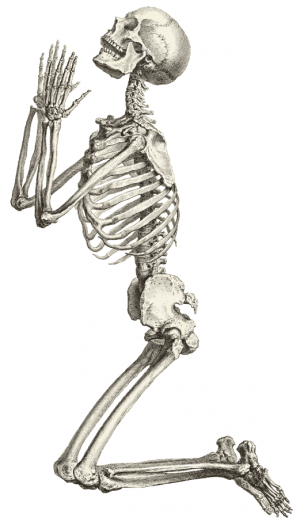
Staff Writer
While some churches today take issue with children dressing as ghouls and goblins for Halloween, many churches are accepting of the holiday.
Halloween as modern Americans observe it is an American creation that has roots in something called the All Saints Day festival from Europe, said Dr. Rosalie Beck, associate professor of religion.
However, the holiday is made more from Latin influences concerning the Day of the Dead, which at first was not a Christian celebration but was adopted by the church in the Spanish colonies.
“Most Christian celebrations other than Easter are adopted from some pagan form; like Christmas was a Roman pagan celebration,” Beck said.
Before World War II, Halloween was about tricks, not treats, Beck said.
“The whole monsters thing is really a creation of fairly recent emphasis,” she said.
There have been Christians in the past and present who have seen the scary aspect of Halloween as a glorification of evil, Beck said. Most major voices in Christianity aren’t currently attacking it as a pagan holiday, though, Beck said.
Most of the opposition, Beck said, she hears from churches is about the safety of children when they head out at night to trick-or-treat.
This is why many churches host fall carnivals, where the intention is to provide a safe place for children to have fun and receive candy on Halloween, Beck said.
“There are lots of Christian expressions that have no problem with Halloween at all, on any theological basis, because of the way they read Scripture and understand it,” Beck said.
Bob Johns, youth pastor of First Baptist Church of Woodway, said he does not see the modern American practice of Halloween as an evil observance, but as a time for tricks and treats.
“To me it was always just a harmless, fun thing,” Johns said.
In the 1980s Johns said his church youth ministry at the time put on a haunted house to raise money for the youth ski trip.
The intent of the haunted house was not to evangelize, Johns said, but to provide a fun event for the community.
“We didn’t have demons or devils or witches,” Johns said. “We stayed away from that. We just had harmless, you know, cemetery scenes and werewolves and deranged people behind bars, and stuff like that.”
Johns said that he could not put on such an event with his church today.
He would never try that at FBC Woodway, he said.
Johns said making a haunted house even in the past was probably not a good idea, though he did enjoy the project work that went into making it and the bonding experience with the other youth members.
Those Christians against Halloween often believe that the world will get worse and worse approaching the Apocalypse, and indicators to that event will be a return to Paganism, like the use of witchcraft, Beck said.
There isn’t a particular denomination that specifically believes these things, but usually the people who do tend to be more socially and politically conservative, Beck said.
They come from traditions that interpret the Bible very strictly, she said.
According to a 2010 article from the BBC, a coven of modern-day witches in Weymouth, U.K., celebrate the Pagan holiday of Samhain on Halloween, in which they acknowledge the coming of the god of darkness, the article says.
“For the witches of Weymouth it is one of their most important religious festivals, a time when they believe the barriers between the physical and spiritual worlds are at their thinnest,” the article says.
Beck said in most cases, however, Pagan rituals on Halloween are not a concern to Christian churches.
“In Waco, people are going to have more trouble with a young woman wearing a harem girl costume than they will with a young boy wearing a zombie outfit,” Beck said.
Some Christians offer evangelistic alternatives to haunted houses in something called a hell house, Beck said.
Hell houses are similar to entertainment-based haunted houses, but their purpose is to impose a fear of hell should a person not accept Christ as savior.
“From a Christian perspective, I’m uncomfortable with the whole hell house thing, because that’s not my understanding of how God calls people to be in a relationship with the divine,” Beck said.
Johns said he expresses a similar belief.
“A lot of people do the hell house thing,” he said. “That’s not my style. I don’t care for it. It’s way too sensational and manipulative for my liking.”
Johns said that despite his lack of condemnation of the observance of Halloween, he doesn’t want to minimize the influence of evil he believes is in the world.
“I don’t think that one night a year Satan goes around and tries to deceive people. I mean, evil we see in our world is represented every night on the news; people killing innocent people with suicide bombs, and sexual predators abusing children.”
Johns said he believes one of the greatest arguments for the existence of God is the existence of evil.
As the church becomes more and more aware of the evil in the world, he said, it’s caused the church to pull back from things that might offend people. For this reason, Johns is cautious of how his youth ministry observes Halloween.



